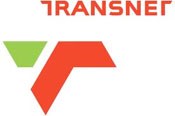Transnet Freight Rail (TFR), the largest business unit in the state-owned freight and logistics group, is increasing its capacity to export coal by 30% with a new 200-wagon train that will run between the Mpumalanga coal fields and the Richards Bay Coal Terminal.
Transnet Freight Rail, which has been criticised for failing to facilitate export opportunities during an unprecedented boom in commodity prices driven by China, has also introduced a new scheduling system to improve reliability and cut turnaround times.
Chief executive Siyabonga Gama said locomotive cycle times would be cut to 41 hours from 58 hours (29%), while turnaround times for wagons would drop to from 63 hours to 48 hours, a saving of 23%. Cutting handling times would "allow for higher reliability which will equate to improved sustainability and service predictability," Gama said.
Project Shongololo challenges coal mining companies to take up the capacity that is being created. In its most recent financial year, Transnet expressed disappointment with the coal tonnages that it moved to Richard Bay.
Only 69.2m tons of coal were exported after TFR had increased its capacity 75m tons. The lower than expected volumes were due to a softening in global thermal coal prices on lower demand as economic activity was muted.
Changing trains
TFR's spokesman Sandile Simelane said he could not say which mines would join in Project Shongololo as customer information was confidential.
The new service had been made possible by changing how TFR sets up its coal trains. Previously, trains were put together in the shunting yard at Ermelo after wagons were sent by coal mines in batches of 100.
Now there are individual coal mines with rail sidings that are large enough to load 200 wagons for a single train. As a result, coal trains would now operate permanently in this configuration, cutting out the shunting previously needed and going from the mines directly to the coal terminal.
Under the current scheduling, which allows for two of these trains to run every day, the coal line's capacity has been boosted to 81m tons a year. The capacity at the Richards Bay terminal is 91m tons a year. "With the new changes, weekly rail capacity for export coal will rise to 1.85m tons a week, a 30% increase," said Shongololo project manager Pragasen Pillay.
TFR said the efficiencies created by easing congestion at the Ermelo yard also mean that the company will be able to rail more coal from Lephalale and the Waterberg region.
Source: Business Day via I-Net Bridge
































